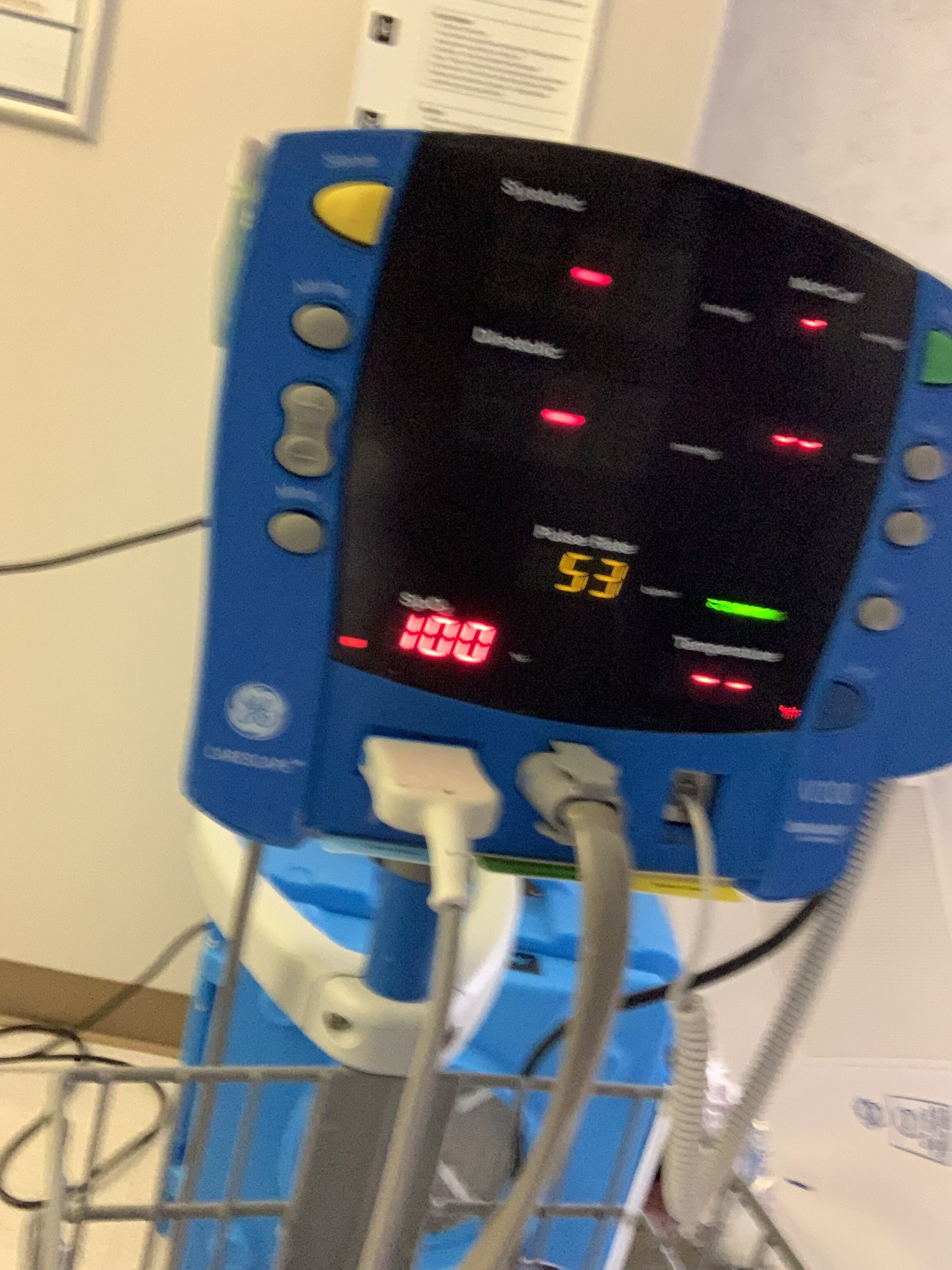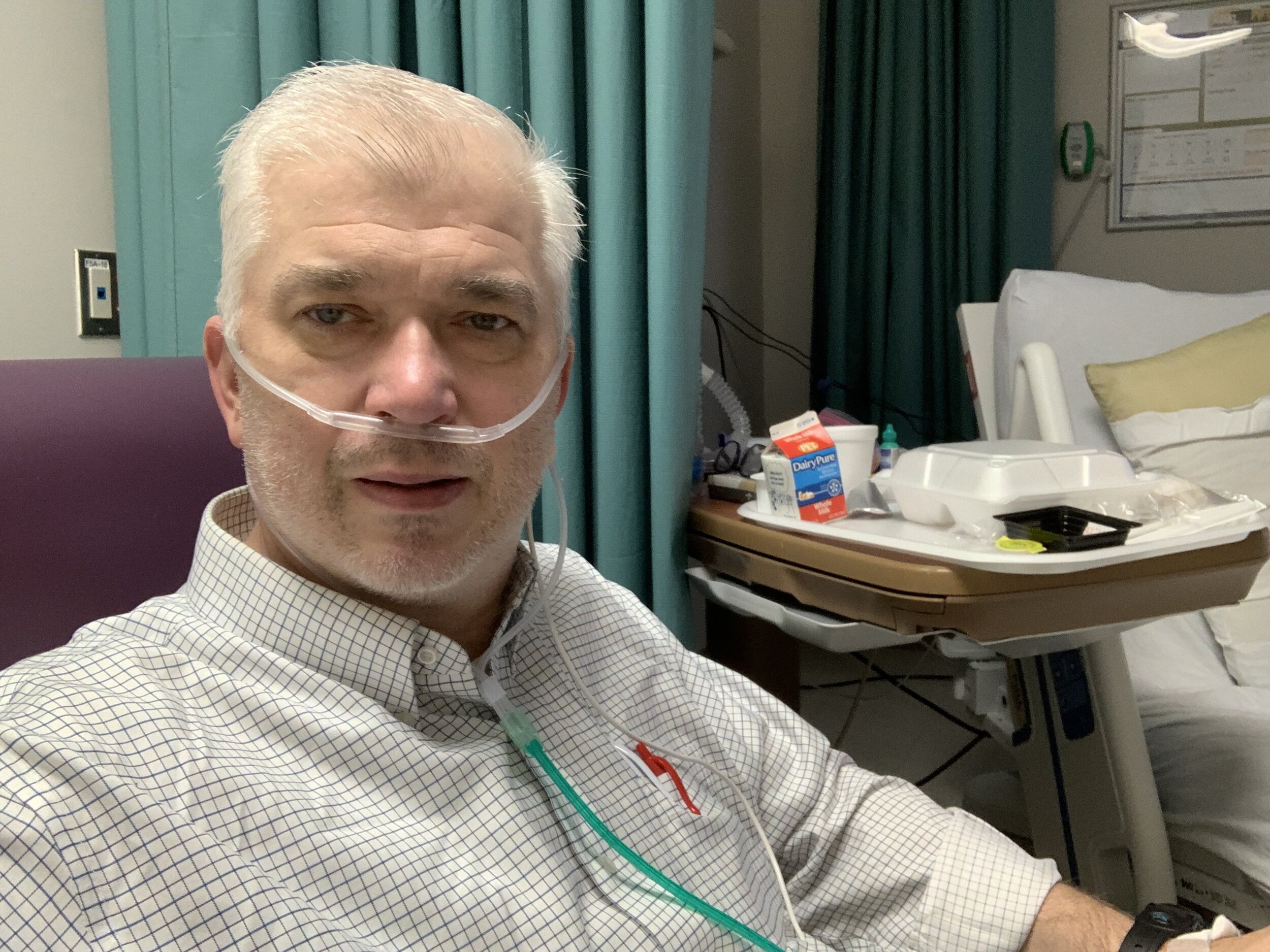Redeemer Stories: Learning to Cherish Time
Rev. Dr. Ralph K. Hawkins is a member and transitional deacon at Church of the Redeemer and is currently doing supply ministry at a congregation near Danville, VA.
On Monday, January 25th of this year, I tested positive for Covid-19. I had been feeling poorly since the previous Thursday, but just thought I was having allergies. By Monday, I was tired and achy, congested, and had developed a cough. I thought I must have a sinus infection, so I went to the doctor, and they gave me a rapid response Covid test that turned out to be positive. They gave me a shot, along with a prescription, and sent me on my way.
I figured I’d be over it in a few days, but I went ahead and sent a group text to friends and colleagues, letting them know I’d been diagnosed with Covid and asking them to pray that my symptoms would be minimal. Nevertheless, my symptoms continued to worsen throughout the week. By Friday, January 29, I could hardly get out of my bed and my breathing had become labored. My wife called a friend, Karen, a nurse, and she took me to the Emergency Room, where they checked my lungs, gave me additional therapeutics, and sent me home.
Over the weekend, however, I continued to deteriorate. By Monday, I had been asleep for nearly a full day, and my oxygen level had dropped precipitously into the mid-60s. Karen and her husband scooped me up and took me back to the Emergency Room, where X-rays revealed that my lungs had become so inflamed that they looked like the frosted glass on a shower door. I had developed the dreaded “Covid-Lung.” I was admitted to the hospital’s Covid unit and told that, because of the condition of my lungs, I could expect to be there anywhere from two to four weeks, or even longer. I was put on forced air, and fell into a deep sleep.
My wife informed our Evening Prayer group, and they began praying earnestly for me. She alerted her Lectio Divina group, and they asked the Lord to heal me. And, friends and colleagues continued to petition the Lord on my behalf. All the while, I was being treated with Remdesivir, Decadron, antibiotics, Singulair, anti-inflammatories, Vitamins C and D, Zinc, and DLCA. Cathy told me that, when she spoke with the doctor each day, he told her, “Well, he isn’t getting worse.”
Sometime around the middle of the week, I came around and began sitting up. Since there were no visitors allowed, I sent my family a photo to let them know that I was okay. Cathy sent some books for me, and I was able to read in bed. It still exhausted me to move and, if I didn’t concentrate on my breathing, it would drop below a certain level and an alarm would go off. If I concentrated on it, though, with the oxygen supplementation, my oxygenation would fluctuate between the 80s and 90s.
Oxygen at 100% with breathing assistance
Dressed and sitting up in the Covid-19 unit
On Friday, I turned a corner and began to improve dramatically. With oxygen support, my oxygenation level reached 100%. I began dressing in the morning, and would sit in the chair beside the bed and read. My doctor expressed surprise and said that, based on the condition of my lungs, he had expected me to have to remain in the Covid unit for two to four weeks. In light of my dramatic improvement, however, he said it may be possible to send me home the following week.
I continued to improve and, on Sunday, my doctor said that if I could pass a breathing test on Monday, he was going to send me home. The next morning, they disconnected me from the external oxygen, and I was able to walk the length of the room and back without setting off the alarm. I passed the test, and was discharged from the Covid unit on Monday, February 8th. Our friend, Karen, said that the only explanation for my rapid turnaround was that it was a miracle.
First day home without oxygen support
In many ways, though, the challenges weren’t over. I had little strength and, for the next two weeks, I basically just slept in my armchair. Then, for the third week, I alternated between sleeping and reading in my armchair. When I finally tried to go into the office, in addition to tiring out very quickly, I found that I couldn’t remember what I was going to do, or I’d literally forget what I was working on while I was working on it. When I went back for a post-Covid checkup with my doctor about a month later, they said I was suffering from “Covid Fog,” had pneumonia, and that my lungs crackled when I breathed, due to the lingering effects of Covid.
Over the next few months, my breathing, physical stamina, and the ability to concentrate all gradually continued to improve. On May 12th, I went back for a second follow up with my doctor, and she said my lungs no longer crackle when I breath, and that I don’t need to return for any more post-Covid checks. Praise God!
These last five months have been a profound learning experience for me. I have always enjoyed being physically active, and have also enjoyed my work, so much so that I usually have several projects going at once. Being stricken down and then only being able to resume work a little at a time was very frustrating for me. But, there were several books I discovered during my convalescence that really ministered to me in this regard. One of them was Touching the Rock: An Experience of Blindness, by John Hull, a British theologian who lost his sight in his fifties due to a progressive disease. Hull explains that his blindness completely altered his perception of time, as he learned that “many forms of disability mean that many things in life have to be done more slowly.” Whereas he used to be driven by the clock, now he couldn’t even see the clock. He simply could not move at the speed he used to. He learned to become more patient with himself and, instead of viewing time as an enemy, began to view it as a friend.
I was comforted to know that Jesus walked slowly, and that God’s love takes all the time that is needed.
Another book I discovered was Three Mile an Hour God, by the Japanese theologian Kosuke Koyama. He explains that the average speed at which a human being walks is three miles an hour, and that Jesus, therefore, walked three miles an hour. In our society, we’re pressured to move more quickly, and we’re embarrassed if we’re slow. As I struggled with these feelings, I was comforted to know that Jesus walked slowly, and that God’s love takes all the time that is needed.
My encounter with Covid and my lengthy recovery revealed to me the beauty of slowness and challenged the whole idea of stigmatizing slowing down. When we simply slow down, we become more present to what is going on. Instead of fighting time, we accept it and cherish it. We begin to see the world as God sees it. And, we become more able to encounter the One who is time, Jesus Christ, the alpha and the omega, the beginning and the end (Rev 22:13).
-Rev. Dr. Ralph K. Hawkins





